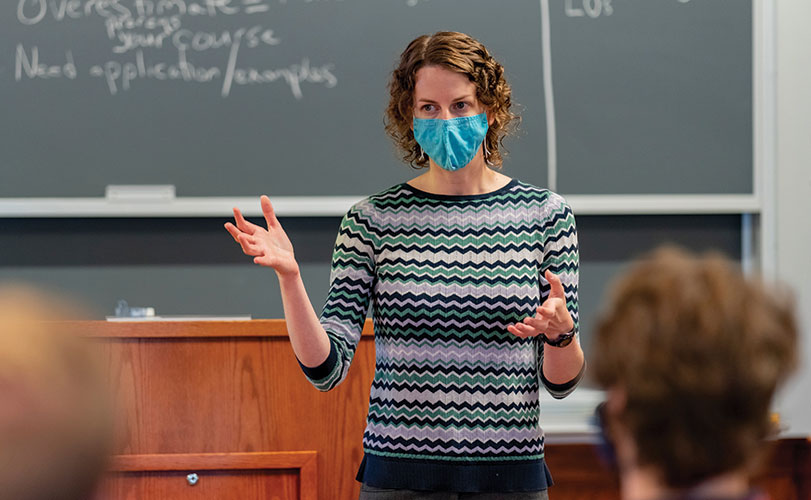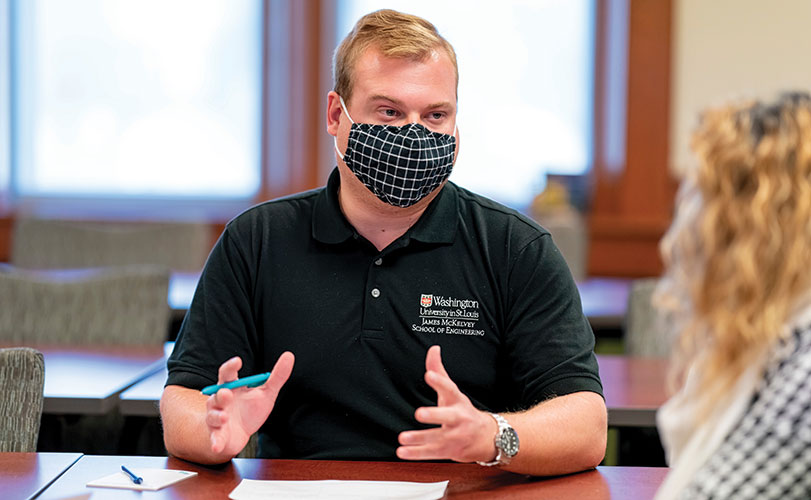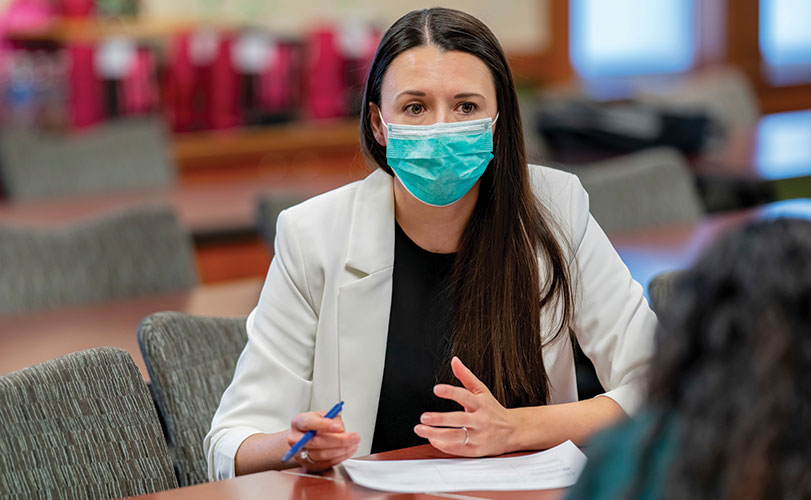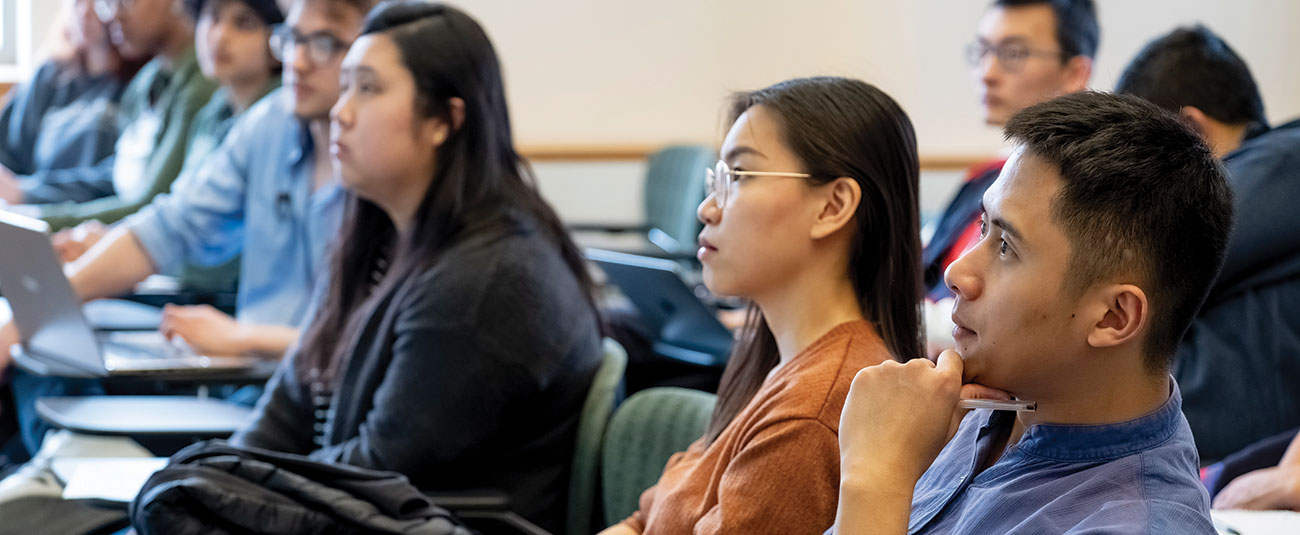Focus on education
McKelvey School of Engineering launches Division of Engineering Education to focus on world-class education for students and tools for faculty
McKelvey School of Engineering has launched a new Division of Engineering Education to facilitate a world-class, well-rounded engineering education for students that stems from excellence in instruction and the art and science of teaching.
Jay Turner has been appointed head of the division by Dean Aaron F. Bobick, dean and the James M. McKelvey Professor. Turner also is vice dean for education, the James McKelvey Professor of Engineering Education and professor of energy, environmental & chemical engineering.
“The creation of this new division is an exciting development for McKelvey’s educational enterprise,” said Jennifer R. Smith, vice provost for educational initiatives and professor of earth and planetary sciences.

Shaina Rowell, assistant director of the Center for Teaching and Learning, presents on effective lesson planning to new STEM faculty. Photo by Whitney Curtis.
“Its efforts in developing transformative, cross-cutting experiences for students and in supporting department- and school-wide efforts to create and promote evidence-based pedagogies will help place McKelvey at the forefront of educational innovation.”
“This new division was designed to support both our school’s departments and instructors and serve as a test bed to develop and adopt innovative approaches to engineering education,” Bobick said. “It also will facilitate and coordinate interdisciplinary and collaborative projects among multiple departments.”
“The Division of Education will be a key resource for experiential learning and career-development programming within McKelvey and foster multidisciplinary and interdisciplinary design-, problem- and project-based opportunities for students,” Turner said.
The Division of Engineering Education will focus on a curriculum that is not specific to any engineering domain with such courses as Engineering Ethics and Sustainability; Amplifying CyberDiversity: Real Humans in Virtual Spaces; Technical Writing; Leadership and Team Building; Conflict Management and Negotiation; and Engineering Math, among others. In addition, it will focus on the 14 Grand Challenges for Engineering put forth by the National Academy of Engineering, which include advancing personalized learning, securing cyberspace, and engineering the tools of the scientific discipline.

Tucker Krone, lecturer in the Division of Engineering Education, discusses lesson planning with Athena Tabakhi, lecturer in computer science & engineering. Photo by Whitney Curtis.
The academic-focused division will be the home for experiential learning and project- and problem-based learning within the school, as well as for communications skills and how they apply in the workplace.
“We are discussing with the department chairs on how the division can support, rather than replicate, what they are already doing,” Turner said. “We plan to tackle corners of the enterprise that the departments would like to see but aren’t planning to stand up themselves.”
Teaching fellows who will focus on specific areas of education will join the division. The first teaching fellow will focus on machine learning as it applies to mechanical engineering. In addition, the division will house a new STEM faculty onboarding program, led by Jason Crandall, director of Learning Design & Innovation, and Meghann Pytka, instructional specialist, that will help McKelvey Engineering faculty who have teaching responsibilities understand the expectations, standards and resources used in STEM courses while providing the tools and techniques needed for high-quality instruction. The onboarding program will include seminars on classroom management, educational technology and faculty development, as well as mentoring, networking and observing classrooms.

Overall, the division will serve as an umbrella organization for a variety of existing offices and academic programs in the school, including the Engineering Communications Center and Instructional Design and Technology. Some full-time lecturers, adjunct faculty, staff and postdoctoral engineering education specialists will be housed within the division.

Alexandra Rutz, assistant professor of biomedical engineering, discusses lesson planning with Neha Singh, lecturer in computer science & engineering, at a seminar on effective lesson planning for STEM faculty. Photo by Whitney Curtis.
In addition, the division will coordinate efforts across all departments, including integrating new instructors and offering mentoring, establishing best practices in academic advising, centralizing some of the school’s service courses and creating new courses that appeal to students throughout the school. It also will support departments in assessing existing curricula, developing new curricula and program-specific initiatives, and serving as a focal point to engage with university-wide education initiatives. The division will house some student activities, groups and organizations that do not have a departmental home or affiliation.
Back to Engineering Momentum

